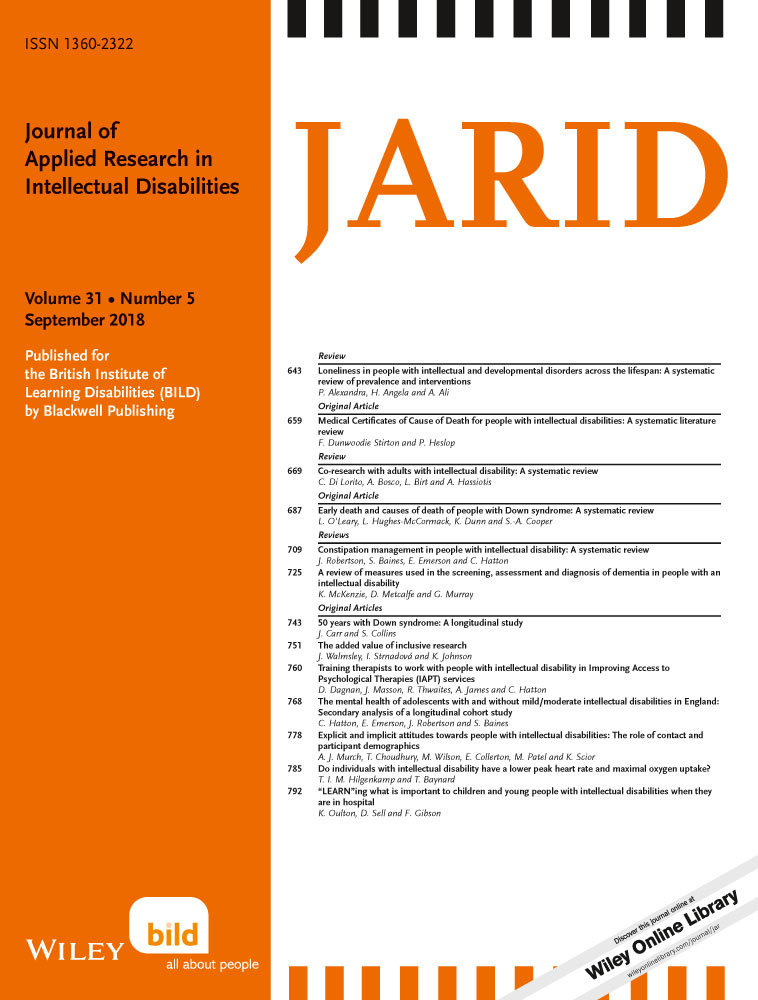How frontline staff manage paperwork in group homes for people with intellectual disability: Implications for practice
Abstract
Background
Paperwork is a key tool that transforms organizational intentions into actions in group homes, although prescriptive procedures may limit how frontline staff use it in practice. The aim of this study was to explore how frontline staff use paperwork in group homes for people with intellectual disability and identify practice implications.
Method
Constructivist grounded theory methodology guided the research. Data collection included semi-structured interviews and participant observations. Coding, comparison and sorting methods were adopted to analyse how staff used paperwork.
Results
Staff followed organizational paperwork rules when they aligned with their resident-focused approach to work. When they perceived rules to misalign with this approach, they managed paperwork by adjusting the time and place of completion, managing content, creating alternative tools and refusing completion.
Conclusions
Staff purposefully managed paperwork rather than simply following procedures. Disability service organizations could develop flexible paperwork procedures and include frontline perspectives in paperwork development.
CONFLICT OF INTEREST
The authors declare no conflict of interests in this study.




